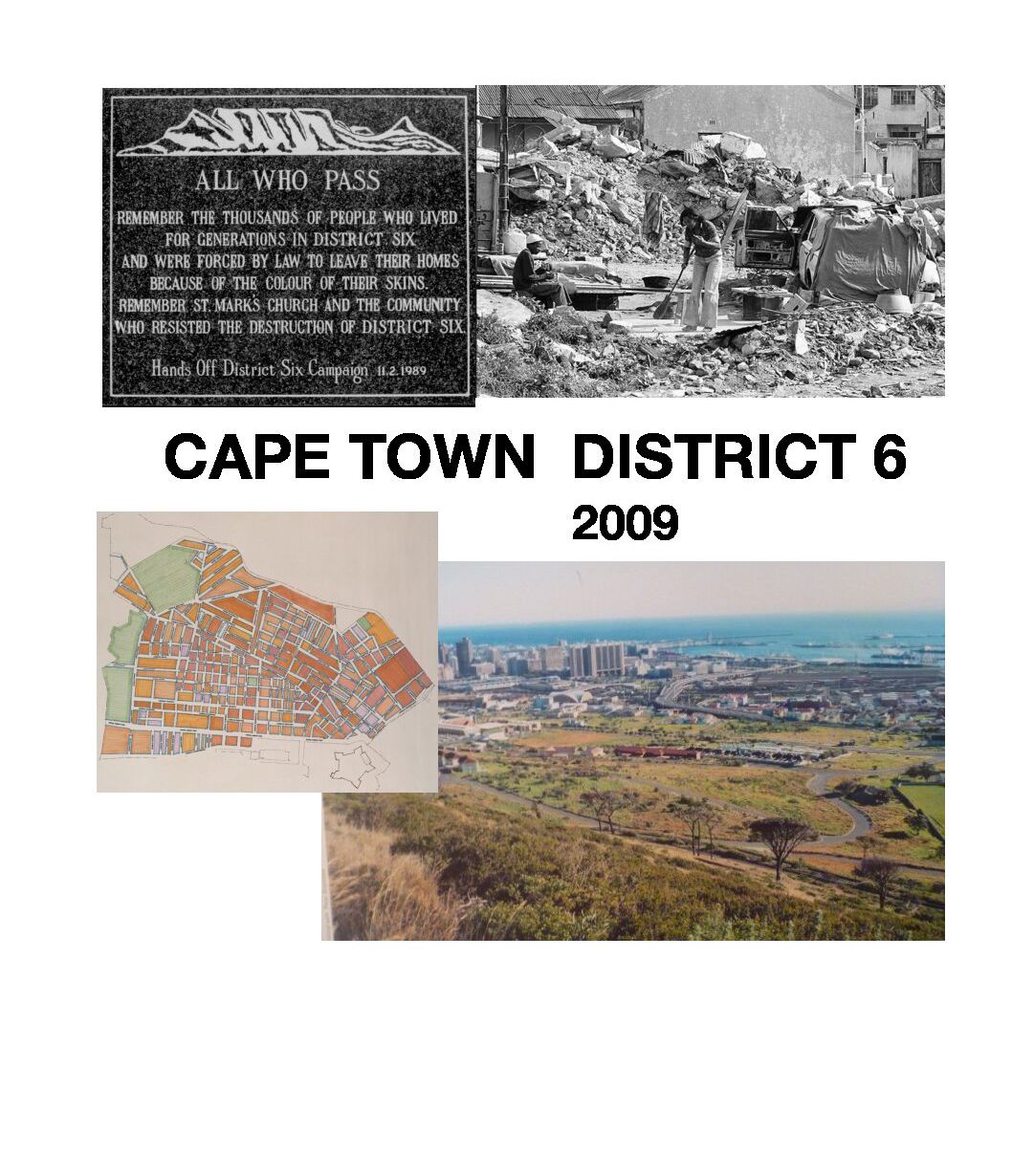The workshop on Cape Town District Six was planned for the students of the School of Architecture, Planning and Geomatics of the University of Cape Town . It was funded by the British Council and ILAUD was invited to participate in it. UCT had already took part in the ILAUD workshops held in Curitiba (2009), Guangzhou (2010) The case of District 6 is very important for several reasons.
- District 6 was a vibrant socially and racially integrated neighborhood close to the port , which thanks to its artisans, shopkeepers and artists had positively contributed to the cultural and social life of Cape Town since the turn of 20th
- In the years 1960s -1980s, as a consequence of the apartheid policies, 60,000 inhabitants of the District had been forced to leave the city of Cape Town and settle in the surrounding segregated townships.
- In 1982 District 6 was bulldozed and canceled.
- After the destruction of the urban fabric and the eviction of all the inhabitant of District Six remained an empty space for many years.It was a wound in Cape Town that nobody knew how to heaL
- Many efforts were made to redevelop the area and to cancel the memory of what happened there. For a number of reasons all tentatives failed. In 2010 when the workshop took place the area was still empty.
The workshop explored several alternative projects for the area. The aim was to find solutions that while preserving the memory of this tragedy could help to create an innovative and inclusive new urban environment.
The case of District Six is important to study esclusion and segregation in other cities of the world.
The workshop was supported by the British Council
